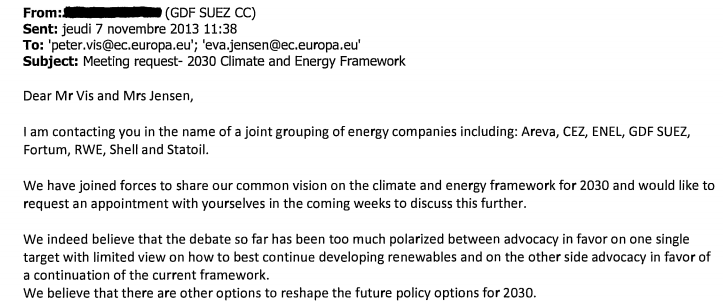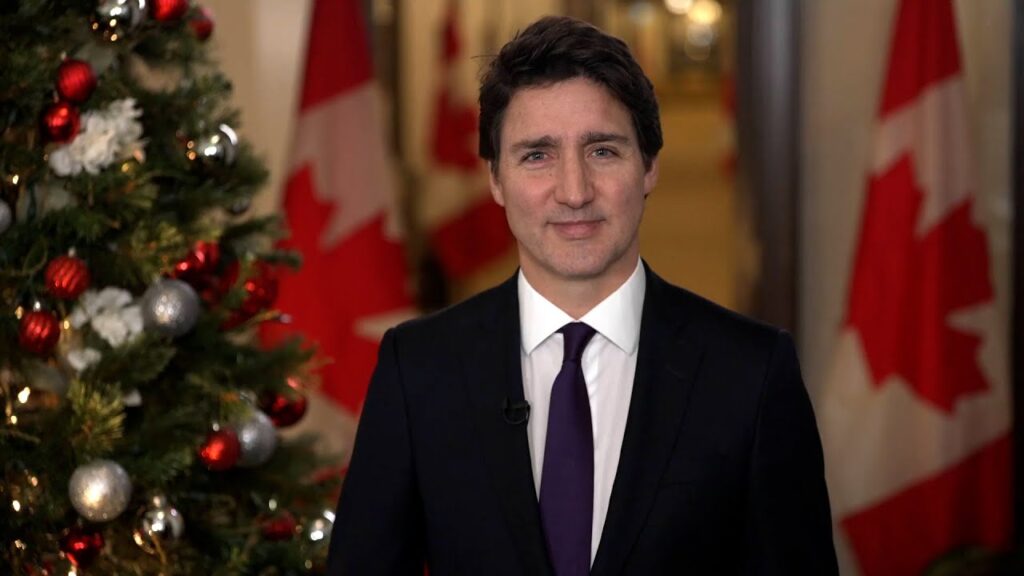This has been cross-posted from Energydesk.
A group of the EU’s largest energy companies – including oil and gas giants Shell and Norway’s Statoil – formed an alliance to lobby against a new EU renewable target according to documents seen by Energydesk.
The lobbying group may surprise few, but comes after it was revealed that Shell started lobbying the EU two years earlier for a policy which favoured gas over renewables, claiming “Gas is good for Europe”.
That claim, however, came before the Ukraine crisis raised concerns about gas supply in EU countries.
The new files show that energy giants Areva, Cez, Enel, RWE, GDF Suez, Fortum, Shell & Statoil lobbied the office of the EU’s climate change commissioner, Connie Hedegaard, during the height of fraught negotiations over the future of Europe’s climate and energy targets.
One Target
In emails and slides released under an EU freedom of information request the firms say they have “joined forces to share our common vision on the climate and energy framework” under the banner of the “One Target Coalition”.
A representative of the group met with Peter Vis, who headed up Hedegaard’s private office, and Eva Jenson, deputy head of her cabinet, in November 2013.
In the presentation, the group argued against any separate EU target for renewable energy or energy efficiency for 2030 – separate targets still exist up until 2020. They claimed that reform of the EU’s carbon market alongside R&D support for renewable and ‘low-carbon’ technologies was the most cost effective way to achieve the EU’s decarbonisation ‘aspirations’.
The “exchange of ideas” at the meeting prompted lobbyists to modify their slide on EU energy prices to include more countries “as suggested” by Connie’s officials though we can’t see any significant change to their case from the addition.
Gas vs Wind
The slides included an extremely high cost for German solar PV but no estimates for future solar costs mimicking the tactics adopted by Shell in their earlier lobbying letter, which misleadingly compared the upfront cost of offshore wind with the upfront cost of gas saying:
“A simple measure of [gas’s] advantage is capital cost: 1 GW of CCGT capacity costs less than 10% of 1GW of offshore wind power”.
Given that gas plants require gas (which costs money) and wind turbines require wind (which doesn’t) this is possibly the most absurd comparison of anything we’ve ever seen – but that’s lobbying for you.
The slides also gave no indication of what level of emissions reductions or clean energy deployment their single target approach might yield. The European Commission’s own impact assessment suggests that without any renewable target deployment of renewable energy by 2030 will be pretty low (around 26%). In their earlier letter Shell pointed to a 30-34% share for renewables by 2050.
The EU eventually decided on a fudge involving a binding carbon target – to be reviewed after climate talks – and relatively low targets for renewables that are binding at the EU but not member state level, and energy efficiency, which may fail to be effectively enforced.
You can view all the original documents here via Energydesk.
Subscribe to our newsletter
Stay up to date with DeSmog news and alerts








